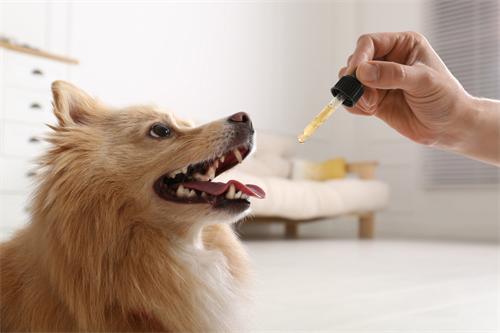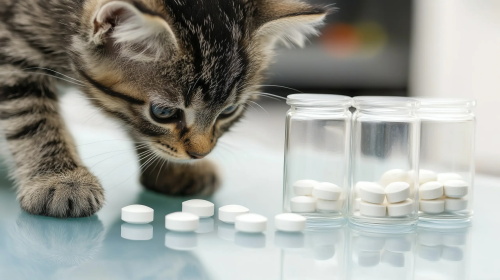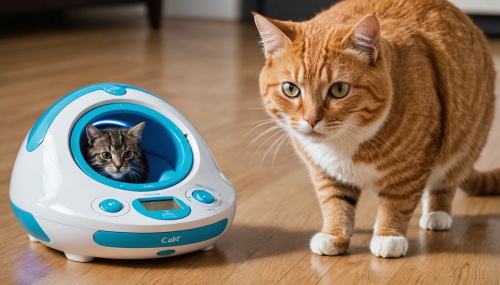The pet supplement market is booming: What to watch out for? What to avoid?

The pet supplement market has exploded in recent years. From fish oil capsules for shiny coats to herbal sedatives and joint health formulas, more and more pet owners are turning to dietary supplements to improve their pets' health. But this comes with its own set of challenges: inconsistent regulation, misleading marketing, potential toxicity risks, and confusion about what pets truly need.
Why is pet supplements growing so rapidly?
Moving towards wellness
Just as many people are increasingly prioritizing their own health—focusing on fitness, nutrition, and organic food—they are applying the same philosophy to their pets. Owners not only want their pets to live longer, but also to have a better quality of life: improved mobility, healthier skin and coats, fewer allergies, and improved digestion.
Holistic and natural appeal
People have a strong attraction to "natural" or "herbal" remedies (botanicals, probiotics, and omega fats), which are often perceived as gentler or more sustainable than synthetic medications.
Accessibility and influencer marketing
Today, supplements are everywhere—on store shelves, online, and on social media. Attractive packaging and heartwarming stories ("Give your dog a calmer, happier life") drive purchases.
Special Diets and Allergies
Some pets' diets are homemade, raw, or limited in ingredients. Others suffer from chronic conditions, which may lead owners to believe supplements are needed to fill nutritional gaps.
Aging Pets
Today, pets are living longer thanks to improved care. However, with longer lifespans come age-related issues such as arthritis, joint degeneration, or a weakened immune system—and supplements are often promoted as solutions.
Scientific Basis: Benefits and Evidence
Although the evidence is often mixed, scientific research on pet supplements is steadily advancing. Below is an analysis of current research on potential benefits of pet supplements, areas of strong support, and areas of uncertainty.
Promising Areas with Strong Support

Omega-3 Fatty Acids (Fish Oil, EPA/DHA)
Omega-3 fatty acids are among the most highly regarded supplements. These healthy fats help reduce inflammation, improve skin and coat condition, enhance joint mobility, and may even help slow cognitive decline in older pets. Studies have shown that omega-3s are particularly effective for dogs and cats with arthritis, itchy skin, or age-related behavioral changes. Omega-3s are also well tolerated at the appropriate dosage.
Digestive and Microbiome Support (Probiotics, Prebiotics)
Probiotics and prebiotic fibers help regulate the digestive system and are particularly useful for pets recovering from antibiotic treatment or dietary changes. Some evidence suggests that these supplements can also enhance immune response and reduce intestinal inflammation. However, their effectiveness depends largely on the quality of the strain, the appropriate dosage, and the integrity of the product.
Targeted Use for Aging or Disease Conditions
Supplements are often used to treat specific health conditions rather than as general health boosters. For example, omega-3 fatty acids can be used for pets with arthritis, antioxidants can be used for older pets with cognitive decline, and glucosamine or chondroitin can be used for joint support. While results may vary, many pet owners and veterinarians report significant improvements in their pets' comfort and mobility when used appropriately.
Vitamin and Mineral Supplements in Homemade Diets
For pets consuming a primarily homemade or raw diet, carefully formulated vitamin and mineral supplements can help balance nutrition and prevent deficiencies. However, many commercially available products do not meet established nutritional standards, and some do not even provide adequate minerals. Choosing a veterinarian-approved formula is crucial to ensuring a balanced and safe diet.
What Factors Remain Uncertain or Lack Support?
Multivitamins for Pets on a Balanced Diet
Pets already on a commercially available "complete and balanced" diet generally do not require additional multivitamin supplementation. Excessive supplementation with nutrients, especially fat-soluble vitamins, can lead to toxicity. For healthy pets, most veterinarians believe that additional multivitamins offer little benefit and may even carry unnecessary risks.
Herbal and Natural Blend Supplements
Herbal formulas are widely available, but they are not rigorously studied. Many formulas have inconsistent potency, poorly defined ingredients, and uncertain dosages. While some herbs show potential benefits, their effects vary, and a lack of standardization makes their effectiveness unpredictable.
Supplements for Cognitive or Behavioral Decline
Some early studies suggest that certain nutrients or antioxidants may help mitigate age-related cognitive decline in dogs, but most studies are preliminary or based on owner observation rather than controlled trials. More evidence is needed to determine which ingredients work best and at what dosages.
Hidden Risks of Pet Supplements
Even when supplements claim to be beneficial, there are potential risks, some of which are serious. Understanding these risks can help pet owners avoid unintended harm and make safer choices.
Toxicity and Contamination

Heavy Metals and Toxic Elements
Research has found that some commercially available pet foods and supplements contain heavy metals such as lead, mercury, and aluminum. Even at low levels, long-term exposure can affect the kidneys, liver, and nervous system, leading to long-term health problems.
Vitamin and Mineral Overdose
Certain vitamins (particularly vitamins A, D, E, and K) are fat-soluble and stored in body tissues, making them more susceptible to toxic levels. For example, vitamin D toxicity can lead to elevated calcium levels, kidney damage, and other systemic effects. Combining fortified foods with multiple supplements can increase this risk.
Mislabeling and Inaccurate Dosing
Mislabeling is common in the supplement industry. Some products contain significantly less or more active ingredients than advertised. In some cases, the levels are too low to be effective, while in others, the levels can be dangerous. Because pet supplements don't adhere to the same premarket testing standards as prescription drugs, potency and purity can vary widely between brands.
Risks and Interactions with Specific Ingredients
Some common "natural" supplement ingredients can be toxic to pets. Additives like caffeine, xylitol, or certain essential oils can be harmful to pets, especially cats. Even seemingly harmless ingredients like kelp or nori can contain excessive amounts of iodine, which can disrupt thyroid function and cause metabolic problems.
Supplements can also interact with medications. For example, anti-inflammatory herbs may enhance the effects of prescription medications, potentially leading to liver or gastrointestinal problems. Always consult a veterinarian before combining supplements with other therapies.
Risks of Oversupplementation Due to Dietary Overlap
Pets fed commercial diets already receive a balanced intake of essential nutrients. Adding additional supplements can lead to nutrient overlap and toxicity, especially with minerals like calcium and phosphorus. Conversely, if pets are fed a homemade diet without professional guidance in selecting supplements, they may receive excessive amounts of certain nutrients while still lacking others.
Lack of Testing and Quality Control
Many pet supplements have not been tested for long-term safety or efficacy. Factors such as improper storage, oxidation (especially with oils), or contamination during the manufacturing process can further degrade product quality. Due to limited regulation, pet owners and veterinarians have a responsibility to carefully examine product labels, manufacturers, and certificates of analysis.



